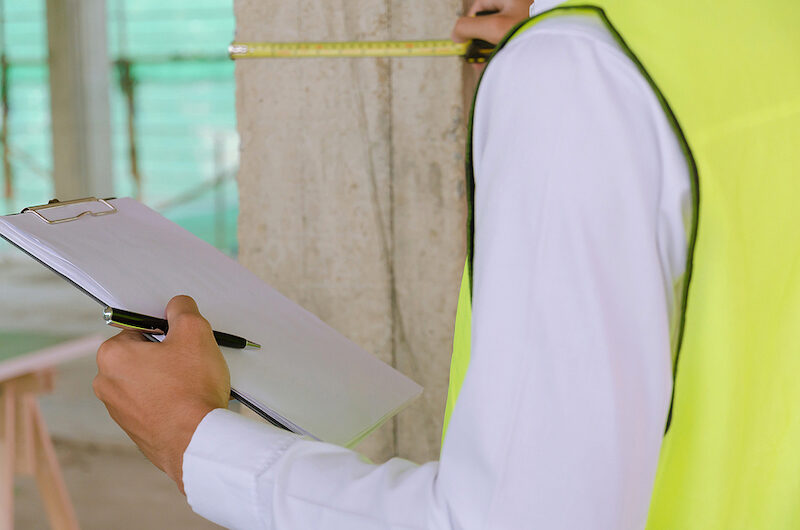Bring Your Site in Compliance with a Pre-Site Walkthrough
By Cesar Compres
During the past decade, New York City agencies have redoubled their efforts to safeguard the public by passing more local laws and aggressively ramping up inspections. Now, with COVID-19 restricting the way we live and work, city agencies have made service modifications to keep businesses and construction moving forward throughout the five boroughs.
The Department of Buildings (DOB), which enforces building codes and zoning regulations, has extended their online services on DOB NOW. Property owners, vendors, and licensed professionals can now perform many critical tasks online, including inspection requests, violation removals, permit submissions, filing applications, etc.
The Office of Administrative Trials and Hearings (OATH) has continued to hold Environmental Control Board (ECB) hearings via telephone.
The Department of Environmental Protection (DEP), which enforces the city’s air, water, and noise codes, has resumed all indoor inspections, including asbestos, leaks, meters, environmental compliance, backflow prevention, and noise.
The Department of Housing Preservation and Development (HPD), which protects tenants’ rights to safety and quality, is conducting inspections in response to complaints, mainly those pertaining to hazardous issues (e.g., mold, lack of hot water, lead, and window guards). This is a perfect time for landlords to clean buildings, before additional regulations go into effect.
The Fire Department of New York (FDNY), which enforces fire codes, has reduced service at their headquarters but has not decreased its diligent service of protecting life and property.
The Department of Environmental Conservation (DEC), which protects the environment and enforces regulations for equipment and fuel storage, continues to oversee the maintenance checks on the city’s streets, sidewalks, and transportation safety issues that arise on a day-to-day basis.
How can building owners avoid compliance issues?
The city may be on pause right now, but the agencies are not. Pre-site walkthroughs can help many building owners save money by avoiding violations and civil penalties from various city agencies. With so many new Local Laws going into effect, staying in full compliance has become increasingly difficult. Building owners must be able to quickly produce an extensive library of vital information, especially for fire-related situations involving FDNY: required signage, notices, special documentation of mechanical equipment (including cooling towers and fire alarms), certificates of fitness, and maintenance documents (e.g., petroleum bulk storages, water tanks, backflow preventers, etc.). Conducting pre-site walkthroughs can identify missing items before city inspectors request them.
Lack of building compliance with local laws can lead to never-ending penalties, as well as headaches when refinancing or selling property. Paying off the penalties will only solve a portion of the summons; dismissal requires filing the correct paperwork.
Building owners have to meet an ever-growing list of specific benchmarks: boiling and cooling tower inspections; filing requirements for elevators and façades. Owners also must maintain valid permits for any construction work being done at the address. In addition, property owners must comply with construction codes. Failure to comply results in violations, monetary penalties, and sometimes criminal charges. Third-party walkthrough professionals can help building owners save money by correcting non-compliant conditions before city inspectors come around.
Walkthrough inspections perform a thorough diagnostic of a building’s overall compliance health, including such checks as the following:
- HPD signage posted in lobby or common area
- Doors open and close properly
- Signs of visible paint peeling, mold, or lead-related chemicals
- General condition of building (g., ceiling holes, floor damage, loose handrails, damaged fixtures)
- Window guard requirements
- Functioning hot water
- HVAC system operation and documentation
- Carbon monoxide detectors and smoke detectors
- Required room labels
- Egress paths
One way or another, New York City inspectors will do all they can to generate profit, while enforcing a much safer, greener environment. For example, properties will soon need to comply with the Climate Mobilization Act, which has significantly lowered acceptable emissions limits with the goal of keeping the city a safe environment in which to live and work. While agencies have (temporarily) slowed down their quest to replenish city coffers, building owners have an opportunity to bring their properties in compliance with current guidelines.
To learn more about pre-site walkthroughs, contact Metropolis Group at 212.233.6344.


